The Great Big Adam Curtis Binge-Watch

You're enthusiastic about Adam Curtis' films, but have you ever made the effort to watch them all? Don't worry, we're here to help. The Great Big Adam Curtis Binge-Watch contains all his films that are free to view over the internet.
For those that don't know Adam Curtis, he is Britain's greatest documentary film-maker and one of the best in the world, rivalling Werner Herzog and Errol Morris. His films focus on big issues of power, politics, history, science, and psychology.
Included are some recommended books to accompany each film or series. These include works by those interviewed in the films mixed in with a few suggestions of my own.
The Trap: What Happened to Our Dream of Freedom (2007)
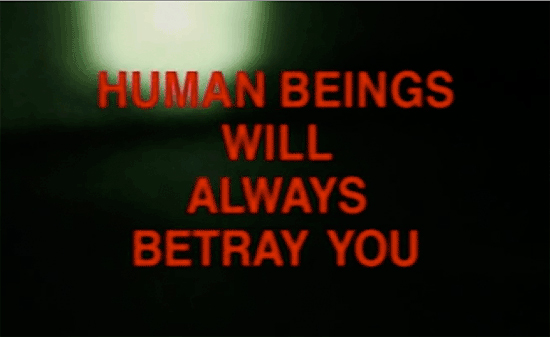
F**K You Buddy
The Lonely Robot
We Will Force You to be Free
The Lonely Robot
We Will Force You to be Free
The Trap explains the origins of our contemporary, limited idea of freedom.
During the Cold War, nuclear strategists developed narrow ideas about human beings - seeing them as self-seeking, simple, almost computer-like beings. These ideas spread through the academic world and seeped into popular culture. This kind of thinking is a trap.
Human beings are complex. They are capable of being selfless as well as selfish. Only with this kind of understanding are we free to imagine a possible, brighter political future.
Recommended reading: Machine Dreams; A Question of Trust; The Wretched of the Earth; The Divided Self
If these don't work try Vimeo, Youtube, Daily Motion, or Freedocumentaries.org.
The Century of the Self (2002)
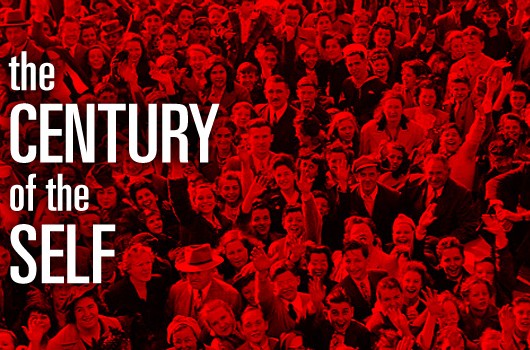
Happiness Machines
The Engineering of Consent
There is a Policeman Inside All Our Heads: He Must Be Destroyed
Eight People Sipping Wine in Kettering
The Engineering of Consent
There is a Policeman Inside All Our Heads: He Must Be Destroyed
Eight People Sipping Wine in Kettering
The Century of the Self is about how the elite have used psychological theories of the unconscious to engineer consent in an age of mass democracy.
It's about how a superficial self and culture have been created by pandering to the unconscious desires of the population.
It examines the rise of public relations looking at how this fed into creating a consumer culture, and how this consumer culture impacted on democracy, with politicians being advertised like products, and politicians being influenced by focus groups.
Recommended reading: Pr!: A Social History of Spin; The Romance of American Psychology; One-Dimensional Man; Manufacturing Consent; and The Triumph of the Political Class
Similar Films: Manufacturing Consent
If the above videos don't work try Vimeo, Youtube, Daily Motion, or Freedocumentaries.org.
Bitter Lake (2015)
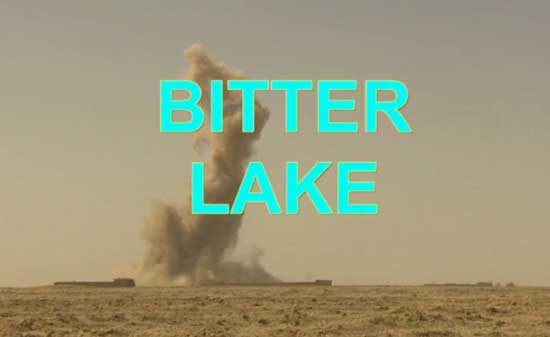
Bitter Lake (part 1)
Bitter Lake (part 2)
Bitter Lake (part 3)
Curtis turns his eye to Afghanistan to look at the West's failure there. He looks at the recent situation but also takes us back through the different strands of history that were woven together to create the present, all using stunning archival footage.
Recommended reading: An Intimate War; No Good Men Among the Living; Afgantsy: The Russians in Afghanistan, 1979-89; The Places In Between
Similar Films: Dirty Wars; Afghanistan: The Great Game; Angels Are Made Of Light; Taxi to the Dark Side
If the above videos don't work try the iPlayer (UK only), Vimeo, Youtube, Daily Motion, or Freedocumentaries.org.
The Living Dead (1995)
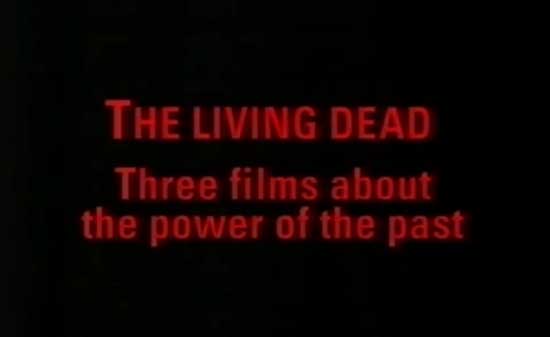
On the Desperate Edge of Now
You Have Used Me as a Fish Long Enough
The Attic
The Living Dead: Three Films About the Power of the Past investigates the way that history and memory (both national and individual) have been used by politicians and others. Curtis contrasts the national image of World War Two as "the good war" with the gory and disturbing memories of the individuals that fought in it. He explains how these illusionary histories are cynically exploited by politicians and the difficulties they cause.
Recommended reading: The Great War and Modern Memory; The Anatomy of the Nuremberg Trials
Similar Films: The Act of Killing
If the above videos don't work try Vimeo, Youtube, Daily Motion, or Freedocumentaries.org.
The Mayfair Set (1999)
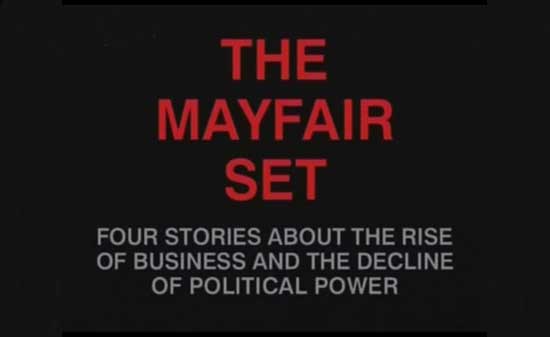
Who Pays Wins
Entrepreneur Spelt S.P.I.V.
Destroy the Technostructure
Twilight of the Dogs
The Mayfair Set opens with the decline of British colonial power and the rise of new, British private interests, both military and business, that would prevail in former colonies (and exert an influence at home).
It then examines the post-Bretton Woods economic situation in Britain and America, focussing on the asset-stripping corporate raiders and hot money.
Concluding, it explains how this new financial world has led to a retreat in state power and an increase in the venality of politicians, with the rise of corporate lobbying and the "virtual senate" of international financial capital.
Recommended reading: A City Spectator; States and the Reemergence of Global Finance: From Bretton Woods to the 1990s; The Retreat of the State; The Predators' Ball; The New Industrial State; Black Monday; Downsizing in America
Similar Films: Dirty Wars; Enron; The Plot Against Harold Wilson
If the above videos don't work try Vimeo, Youtube, Daily Motion, or Freedocumentaries.org.
All Watched Over by Machines of Loving Grace (2011)

Love and Power
The Use and Abuse of Vegetational Concepts
The Monkey In The Machine and the Machine in the Monkey
A series of films about how humans have been colonised by the machines they have built. Although we don't realise it, the way we see everything in the world today is through the eyes of the computers.
The Power of Nightmares (2004)
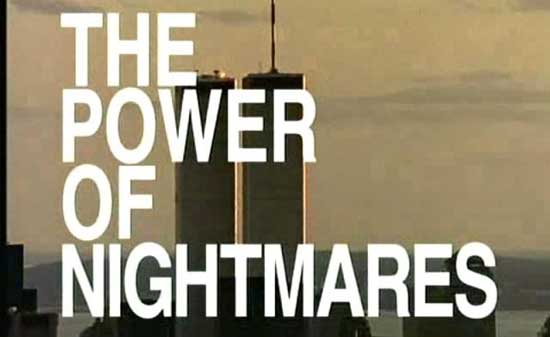
Baby It's Cold Outside
The Phantom Victory
The Shadows in the Cave
The Power of Nightmares is about the politics of fear. It charts the rise of Neoconservatism and radical Islamist groups during the final years of the Cold War, and after. It examines how the neocons inflated the threat of terrorism to unite the population behind George W Bush and the War in Iraq.
Recommended reading: Al-Qaeda: The True Story of Radical Islam; killing Detente; They Knew They Were Right: The Rise of the Neocons; Fear: The History of a Political Idea
Similar Films: Taxi to the Dark Side
Pandora's Box - A Fable from the Age of Science (1992)
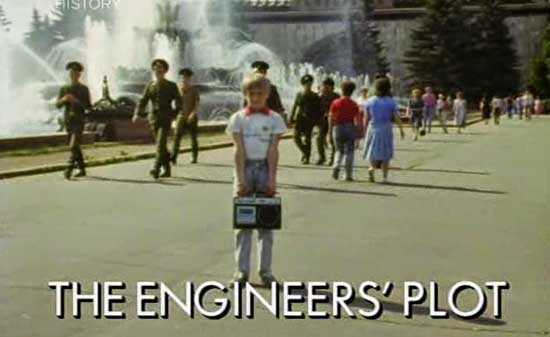
The Engineers' Plot
To The Brink of Eternity
The League of Gentlemen
Goodbye Mrs. Ant
Black Power
A Is for Atom
Pandora's Box examines the consequences of political and technocratic rationalism.
This series explores how science is corrupted by politics. The first episode is an economic history of the Soviet Union, and how the leadership believed they could empower scientists to create a utopia. The second is on game theory and how the scientific method could keep the Cold War under control. The third is an economic history of the UK in the 1980s. In it an economist and adviser to Margaret Thatcher, Alan Budd, worries that the whole Monetarist project might have simply been an attempt to reduce the economic and political power of the working class by raising unemployment and lowering wages, as he puts it "creating a Reserve army of labour." The forth episode is on environmentalism, looking at DDT and Rachel Carson's book Silent Spring. The fifth is an economic history of Ghana. And the sixth looks at the disturbing history of nuclear power in the US, UK and Soviet Union, with lessons for the democratic control of technology.
Recommended reading: The Demise of Nuclear Energy?: Lessons for Democratic Control of Technology; Silent Spring; The Whale and the Reactor: A Search for Limits in an Age of High Technology; Looting Africa; An Economic History of the USSR
25 Million Pounds (1996)
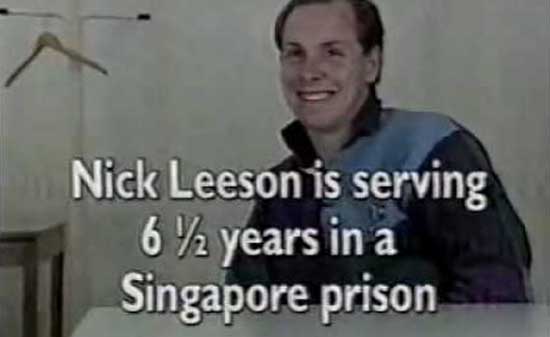
25 Million Pounds
25 Million Pounds is a biographical film on banker Nick Leeson. Leeson, a former derivatives broker, caused the spectacular collapse of Barings Bank, through his fraudulent trading.
Similar films: Enron; Inside Job
The Great British Housing Disaster (1984)

The Great British Housing Disaster
Promising to build hundreds-of-thousands of homes each year, Adam Curtis examines the results of government policy. He discovers shocking corruption that has resulted in homes that are often extremely dangerous.
Recommended reading: Seeing like a State : How Certain Schemes to Improve the Human Condition Have Failed
The Way of All Flesh (1997)
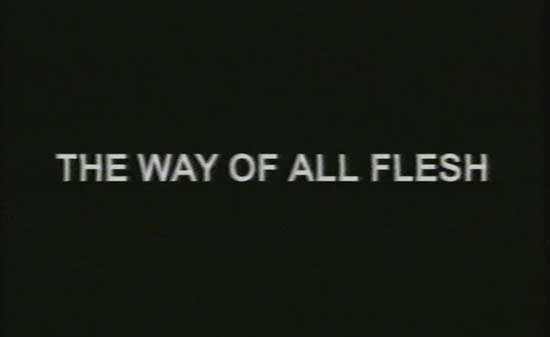
The Way of All Flesh
In The Way of All Flesh, Adam tells the story of Henrietta Lacks. Lacks was an African-American woman who was the unwitting source of cells (from her cancerous tumor) which were cultured to create the first known human immortal cell line for medical research.
Recommended reading: The Immortal Life of Henrietta Lacks